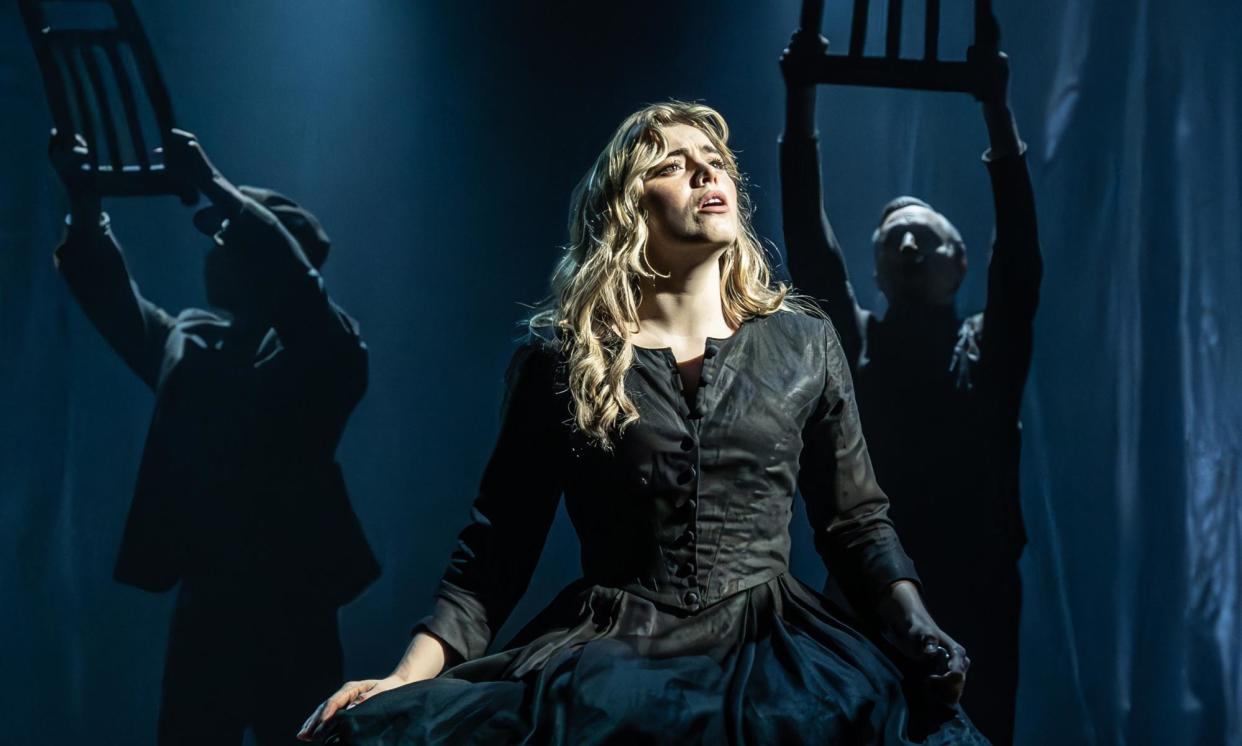London Tide review – Dickens and PJ Harvey team up for a melodrama as murky as the Thames

Period drama is given some sharp edges in this adaptation of Charles Dickens’ last completed novel, Our Mutual Friend, set to a plangent soundtrack by PJ Harvey. The result is a dose of Dickens, and Harvey, as never seen or heard before.
There might be some dissonance in their unlikely meeting but there are sparks of brilliance, too. Directed by Ian Rickson, this story of poverty and class mobility is light on the satire and heavy on mood, strikingly staged as a kind of 19th-century noir in an impressively pared-down adaptation by Ben Power.
“This is a story about London and death and resurrection,” the cast sings by way of introduction, in London Song. It is a neat summation of a sprawling story with complicated subplots made surprisingly streamlined by Power. The focus is on Bella Wilfer (Bella Maclean), an impoverished young woman promised the hand of a rich man, now presumed dead, and her relationship with mysterious newcomer John Rokesmith (Tom Mothersdale). There is also siblings Lizzie (Ami Tredrea) and Charley Hexam (Brandon Grace), the children of a boatman (Jake Wood), who must deal with the legacy of their father’s apparent crimes.
Bunny Christie’s set creates its world with very little. A 19th-century London infested with crime and poverty rises out of darkness. Single planks held by actors are boats; bodies splash into unseen waters; ingeniously, the tidal movement of the Thames is evoked with the sway of the light rigging overhead. It is counterintuitive for such heavy machinery to represent the flow of water, and yet it does so to awesome effect.
The songs are anti-ballads, of sorts, with big pitch leaps between notes, accompanied by a single beat drum. Lyrics (by Harvey and Power) are as spare as the set design, bluntly simple at times but with meanings that are sometimes gnomic.
Their seriousness gives the story a lugubrious depth but also undercuts Dickens’ satire and levity. And while the drama strains to give the broader characters some depth as a whole, it does not always work – particularly in the case of evil schoolmaster Bradley Headstone (Scott Karim), a pantomime villain whose murderous motivation is desperately underexplained.
The play winds up to a melodramatic end, with its potboiler elements exposed, but it still retains a curious power, and performances shine. Wood is entertaining as the gruff boatman and Tredrea is excellent as the self-sacrificing Lizzie. Maclean brings a marvellous voice, adept at navigating Harvey’s tricky notes, and sings numbers like Evening and Holloway beautifully. Mothersdale, magnetic as ever, delivers the twist around his identity with gasping revelation. And although Jenny is a minor role – a doll-maker and friend to Lizzie – Ellie-May Sheridan is a shining star of the show with her combination of steely character and endearing talk of her dolls.
Characters sing downstage, facing us directly, as if in declaration, and narration here is shared so that the story is fluidly told. Power creates stronger, freer women: neither Lizzie nor Bella follows the chronology of the book into marriage. Both have greater agency and Lizzie’s burden of guilt, as well as her sense of duty to rescue the flawed men around her, still resonates for today.
• At National Theatre, London, until 22 June


